Gender equality is not just the concern of half the world's population; it is a human right that is critical for the future of the planet. Women's rights must be fully integrated into efforts to promote sustainable development and fight climate change.
NEW YORK – Twenty years ago, the adoption by 189 governments of the
Beijing Declaration and Platform for Action marked a turning point in the history of women's rights. This progressive blueprint remains a powerful source of inspiration in the effort to realize equal opportunities for women and girls.
But while much progress has been made in the intervening decades, much more remains to be done to ensure that women and children are guaranteed healthy lives, education, and full social inclusion. In just 42 countries do women hold more than
30% of seats in the national legislature, and girls still do not have the same educational opportunities as boys in Sub-Saharan Africa, Oceania, and western Asia.
Gender equality is not just the concern of half of the world's population; it is a human right, a concern for us all, because no society can develop – economically, politically, or socially – when half of its population is marginalized. We must leave no one behind.
This is a year of global action. Governments will adopt a new set of Sustainable Development Goals, work together to draft a meaningful climate agreement, and craft a framework to provide the financial resources needed to deliver on a global sustainable development agenda. Those participating would be wise to remember that inclusive sustainable development can be realized only when all human rights – including gender equality – are protected, respected, and fulfilled.
The three of us – each from different continents – support these international processes. We share a common motivation for our work: protecting our planet for our children and grandchildren, and ensuring the development of a world where all people – regardless of their gender, race, religion, age, disability, or sexual orientation – have an equal opportunity to achieve their aspirations.
It is critical that we continue to engage men and boys actively in the fight against gender-based discrimination and violence. We have an opportunity to secure a better future and raise a new generation of girls and boys who respect one another and work together to protect the rights of all people.
The implications of not providing girls with equal voices, choices, and opportunities affect not just their lives, but the future of the planet. Efforts to promote inclusive sustainable development and fight climate change are inextricably linked. If we care about development, we must care about the consequences our greenhouse-gas emissions are having around the world. And if we do not take urgent action, we will irreparably damage the natural systems on which life depends.
This is not a threat that we can set aside until we have eradicated poverty worldwide. Nor is it a problem that we can leave to future generations to address. Left unchecked, climate change – along with other unsustainable patterns of development – could wipe out the gains of recent decades. All countries – developed and developing – have a role to play in ensuring a stable world for our children.
Women are among those most vulnerable to the impacts of unsustainable practices and climate change, because they often have no independent income or land rights. In many countries, women are responsible for the provision of water and food for their families. And when the usual sources of these resources are disrupted, women are forced to travel farther and spend more time working for less return. Scarcity requires them to make difficult choices like pulling children out of school or deciding which family member can afford to skip a meal.
In many homes around the world, women are at the heart of the household's nexus of water, food, and energy – and thus often know firsthand about the challenges and potential solutions in these areas. In our conversations with women around the world, we hear about their struggles, but also their ideas, many of which, if applied, could facilitate change. Women are the most convincing advocates for the solutions that they need, so they should be at the forefront of decision-making on sustainable development and climate-change mitigation.
Over the coming weeks, during the 59th session of the
Commission on the Status of Women in New York, the international community will take stock of the progress that has been made toward achieving what was pledged 20 years ago in Beijing and assess where more efforts are needed.
This year will be crucial. With the
Financing for Development conference in July, the Special Summit on Sustainable Development Goals in September, and the UN Climate Change Conference in December, we have the opportunity to integrate gender equality and women's empowerment fully into the effort to promote sustainable development and fight climate change.
The three of us wake up every morning thinking about how to make this happen. Everyone should. We call on all women and men to join us in making their voices heard loudly and in seizing this opportunity for a just and equitable future for all.


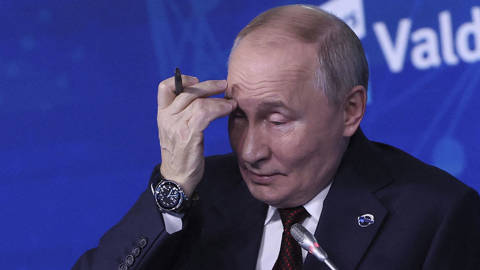
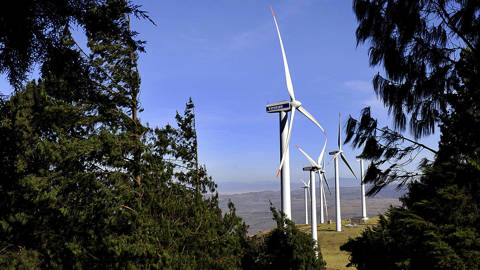
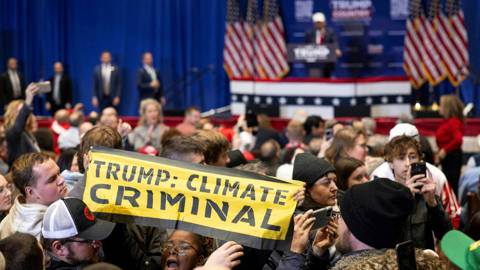
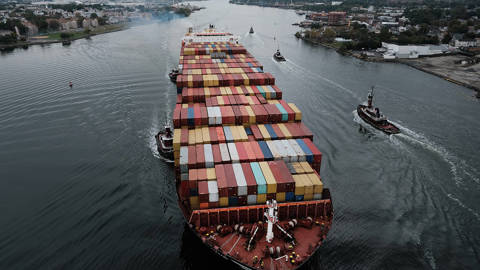
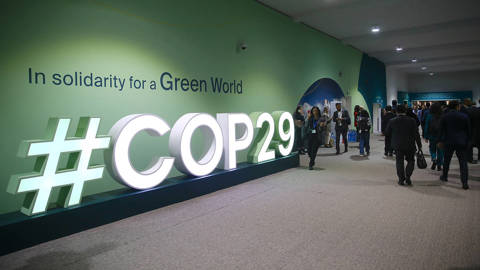
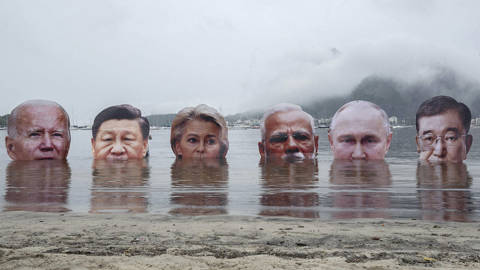
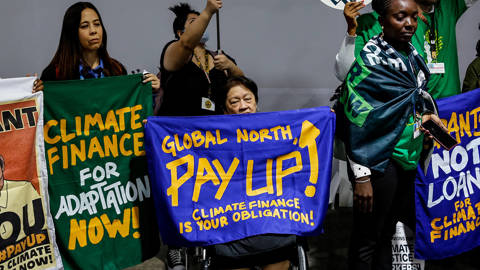
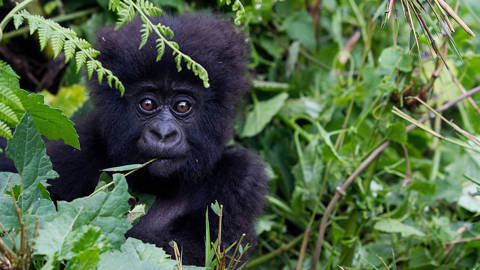
NEW YORK – Twenty years ago, the adoption by 189 governments of the Beijing Declaration and Platform for Action marked a turning point in the history of women's rights. This progressive blueprint remains a powerful source of inspiration in the effort to realize equal opportunities for women and girls.
But while much progress has been made in the intervening decades, much more remains to be done to ensure that women and children are guaranteed healthy lives, education, and full social inclusion. In just 42 countries do women hold more than 30% of seats in the national legislature, and girls still do not have the same educational opportunities as boys in Sub-Saharan Africa, Oceania, and western Asia.
Gender equality is not just the concern of half of the world's population; it is a human right, a concern for us all, because no society can develop – economically, politically, or socially – when half of its population is marginalized. We must leave no one behind.
This is a year of global action. Governments will adopt a new set of Sustainable Development Goals, work together to draft a meaningful climate agreement, and craft a framework to provide the financial resources needed to deliver on a global sustainable development agenda. Those participating would be wise to remember that inclusive sustainable development can be realized only when all human rights – including gender equality – are protected, respected, and fulfilled.
The three of us – each from different continents – support these international processes. We share a common motivation for our work: protecting our planet for our children and grandchildren, and ensuring the development of a world where all people – regardless of their gender, race, religion, age, disability, or sexual orientation – have an equal opportunity to achieve their aspirations.
It is critical that we continue to engage men and boys actively in the fight against gender-based discrimination and violence. We have an opportunity to secure a better future and raise a new generation of girls and boys who respect one another and work together to protect the rights of all people.
BLACK FRIDAY SALE: Subscribe for as little as $34.99
Subscribe now to gain access to insights and analyses from the world’s leading thinkers – starting at just $34.99 for your first year.
Subscribe Now
The implications of not providing girls with equal voices, choices, and opportunities affect not just their lives, but the future of the planet. Efforts to promote inclusive sustainable development and fight climate change are inextricably linked. If we care about development, we must care about the consequences our greenhouse-gas emissions are having around the world. And if we do not take urgent action, we will irreparably damage the natural systems on which life depends.
This is not a threat that we can set aside until we have eradicated poverty worldwide. Nor is it a problem that we can leave to future generations to address. Left unchecked, climate change – along with other unsustainable patterns of development – could wipe out the gains of recent decades. All countries – developed and developing – have a role to play in ensuring a stable world for our children.
Women are among those most vulnerable to the impacts of unsustainable practices and climate change, because they often have no independent income or land rights. In many countries, women are responsible for the provision of water and food for their families. And when the usual sources of these resources are disrupted, women are forced to travel farther and spend more time working for less return. Scarcity requires them to make difficult choices like pulling children out of school or deciding which family member can afford to skip a meal.
In many homes around the world, women are at the heart of the household's nexus of water, food, and energy – and thus often know firsthand about the challenges and potential solutions in these areas. In our conversations with women around the world, we hear about their struggles, but also their ideas, many of which, if applied, could facilitate change. Women are the most convincing advocates for the solutions that they need, so they should be at the forefront of decision-making on sustainable development and climate-change mitigation.
Over the coming weeks, during the 59th session of the Commission on the Status of Women in New York, the international community will take stock of the progress that has been made toward achieving what was pledged 20 years ago in Beijing and assess where more efforts are needed.
This year will be crucial. With the Financing for Development conference in July, the Special Summit on Sustainable Development Goals in September, and the UN Climate Change Conference in December, we have the opportunity to integrate gender equality and women's empowerment fully into the effort to promote sustainable development and fight climate change.
The three of us wake up every morning thinking about how to make this happen. Everyone should. We call on all women and men to join us in making their voices heard loudly and in seizing this opportunity for a just and equitable future for all.